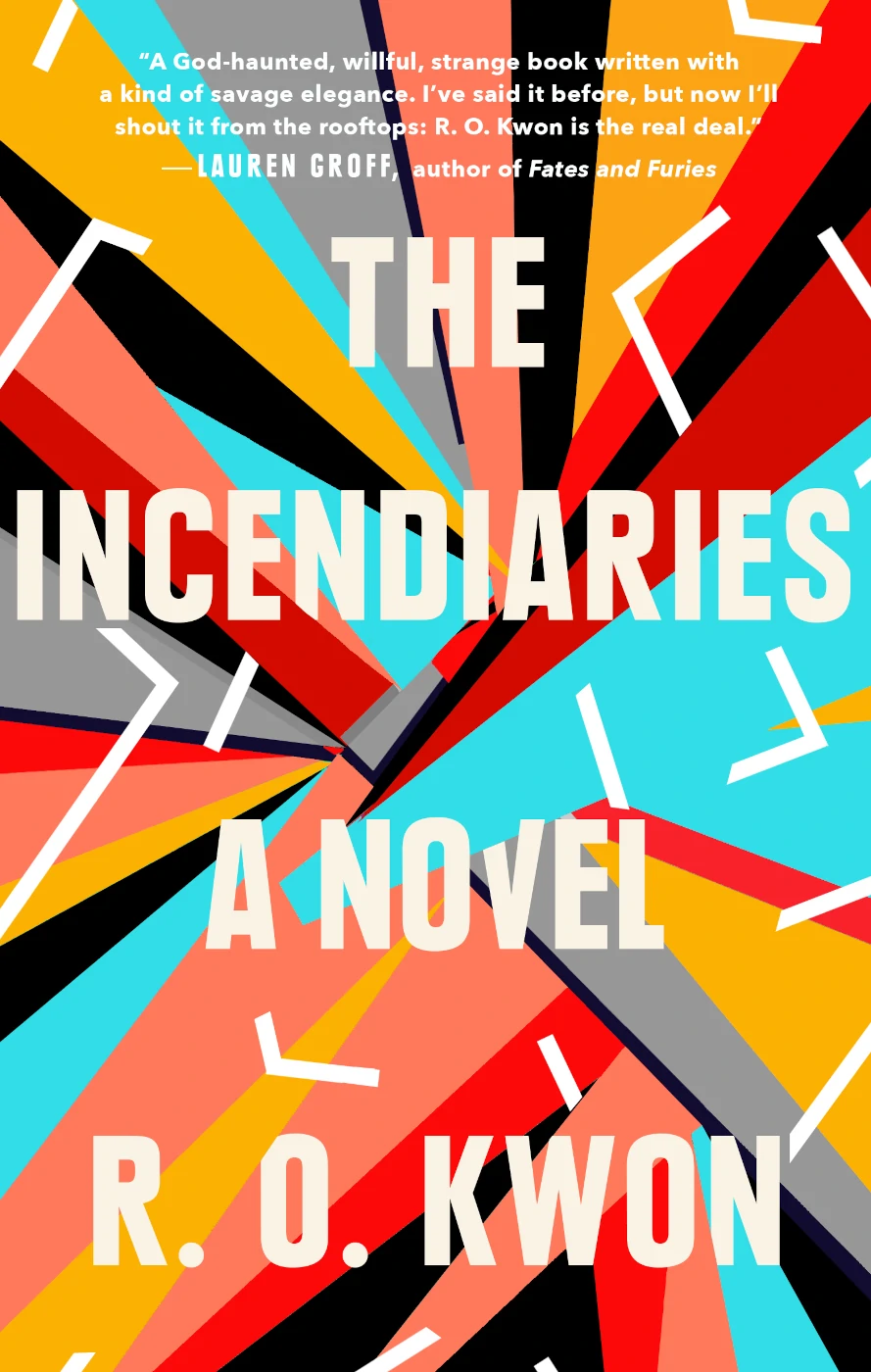
The Incendiaries, by R.O. Kwon
Words By Eileen Silverthorn
There are few novels that weave together the thrilling with the deeply, even painfully, introspective with both art and grace. R. O. Kwon achieves exactly this in her debut novel, The Incendiaries.
The Incendiaries is told entirely from the perspective of Will Kendall, a poor misfit at the elite Edwards University, who is irrevocably in love with Phoebe Lin, a young woman with a secret past also attending Edwards. As Will struggles to confront the Christian fundamentalism that led him to transfer into Edwards from Bible college, Phoebe grapples with the recent loss of her mother, and finds herself drawn into a radical religious cult tied to North Korea. This extremist group, led by the charismatic John Leal, holds mysterious ties to Phoebe’s Korean American family, and before long she becomes tangled up in acts of domestic terrorism. After the group bombs several buildings, killing five people, Phoebe drops off the map. Will—consumed with his obsessive love for Phoebe—sets out to find her, wondering if she could have been responsible for this violence.
With Will providing an outcast’s point of view, trying so hard to fit in with the privileged and to ignore the ache of disappointment he feels after falling away from Christianity, we notice right away that Kwon has chosen him to tell Phoebe’s story for a reason. The loss of purpose that Will carries throughout the novel provides us with a brilliant and precise lens with which to identify and understand Phoebe’s. We learn that just as Will was lead into Christian fundamentalism—looking for guidance, connection, something to give his life meaning—Phoebe is led to political extremism, searching for the promise of community and an escape from the pain and guilt she harbors over her mother’s death. Kwon constructs these character’s pasts and the similarities behind the loss they both feel to give the reader a window into their minds and motivations, without telling us outright what we should glean from their experiences.
The novel opens on John Leal’s cult raising a toast as they watch one of the buildings they’ve bombed fall into ruin, ash hanging in the air and rubble littering the crisp, green lawns of Edwards University. At first, the novel seems to creep slowly from this first scene to the next act of violence, but as it moves forward, Kwon oscillates between explorations of our characters’ shrouded pasts and the recent actions and motivations that lead them into a frenzied search for answers, purpose, and revolution. She brilliantly gives us glimpses of terrorism and violence between returns to the mundane. This creative manipulation of time asks the reader not only to look forward from event to event, but also backwards and within all at once. What works so well about this mechanism is that it seems to mirror the movement of human thoughts and consciousness; the novel’s current events capture our focus at first, but then the narrative takes us wandering back into the past to seek explanations and to entangle us more deeply in the character’s motivations from memory to memory—almost like we’re caught in a daydream—only to call us back with the next moment of action.
R. O. Kwon draws the reader in with these hidden threads of her characters’ pasts and the dark, thrilling action driving these acts of terrorism. What makes the reader stay, however, is the deep and gritty honesty with which she paints people. Though we see primarily through Will’s eyes, Kwon does not allow this focus to impede the uniqueness of her characters. We can still feel all of them in a stunningly real way: Phoebe’s guilt and responsibility over her mother’s death; the tension Will carries as he pretends to be a privileged Edwards student, despite the God-shaped hole he feels from losing his religion; the trauma from his experiences in North Korea that John Leal uses to stitch together his words about faith, pain, and purpose for his followers.
If anything, Kwon uses Will’s point of view as an opportunity to add layers of character and voice, giving us insights into the lives of those around him: there is an air of nostalgia and longing when Will talks about Phoebe, and about the drinking and sex she uses to numb herself to her past wishes, past crimes. We can even sense a feeling of jealousy and hesitant admiration when he focuses on John Leal’s enigmatic past. Kwon weaves between these variations in voice throughout the novel seamlessly, revealing the intimacies of these character’s relationships and the secrets that lead them into the crosshairs of obsession and political extremism.
Though The Incendiaries is her debut novel, Kwon’s writing and sense of story is strong and magnetic, and she crafts characters whose auras can be felt through her pages. She pulls you across the shallow college life Phoebe and Will have built for themselves and then deep into an obsessive search for answers—for personal and political revolution—that will burn through you until the last page.